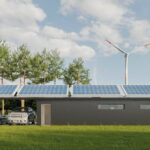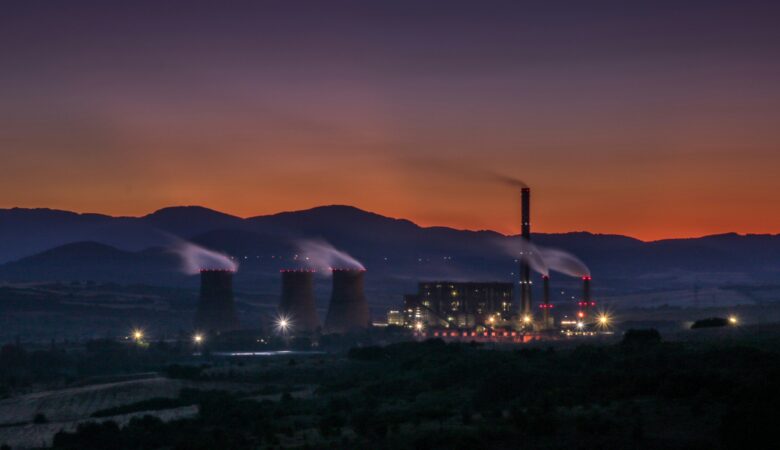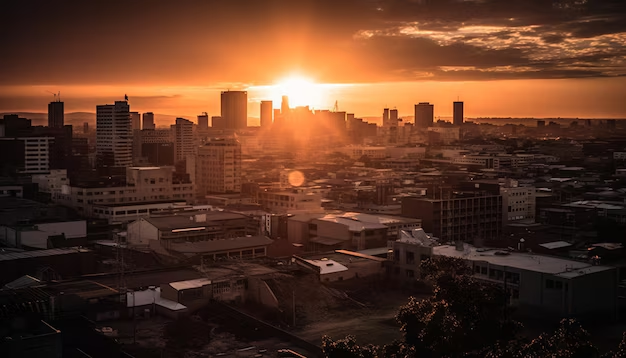Nigeria, Africa’s most populous country, faces a complex set of energy challenges. Despite being rich in natural resources, the nation struggles with inconsistent electricity supply, an overburdened national grid, and a growing demand for energy driven by population growth and industrialization. The future of energy distribution in Nigeria lies in overcoming these challenges through innovation, investment, and policy reforms.
In this article, Rhinobay Energy explores key trends, technologies, and strategies that will shape the future of energy distribution in Nigeria, focusing on the role of renewable energy, decentralized systems like microgrids, and the importance of sustainable energy practices.
The Current State of Energy Distribution in Nigeria
Nigeria’s energy sector is characterized by a significant gap between energy supply and demand. The country’s national grid, managed by the Transmission Company of Nigeria (TCN), is plagued by inefficiencies, high transmission losses, and frequent blackouts. Currently, the national grid has an installed generation capacity of approximately 12,500 MW, but actual output often falls below 4,000 MW due to issues like gas shortages, poor infrastructure, and operational inefficiencies. This inadequate supply has left millions of Nigerians, especially in rural areas, without access to reliable electricity.
To address these challenges, Nigeria has increasingly turned to alternative energy distribution models, including decentralized and renewable energy solutions. These alternatives not only promise to improve energy access but also align with global sustainability goals.
The Rise of Decentralized Energy Systems
Decentralized energy systems, such as microgrids and off-grid solar solutions, are emerging as vital components of Nigeria’s energy future. Unlike the centralized national grid, decentralized systems generate electricity closer to the point of consumption, reducing transmission losses and providing more reliable power, especially in remote or underserved areas.
Microgrids and Off-Grid Solutions
Microgrids are small-scale power grids that can operate independently or in conjunction with the national grid. They often integrate renewable energy sources like solar, wind, or hydro, along with energy storage systems to ensure a stable power supply. In Nigeria, microgrids are particularly valuable in rural communities where extending the national grid is economically unfeasible.
Rhinobay Energy Ltd, a leading energy company in West Africa, has been at the forefront of deploying microgrid solutions across Nigeria. By leveraging renewable energy technologies, Rhinobay Energy is providing reliable, clean, and affordable electricity to communities that previously lacked access to power. Their projects demonstrate the potential of microgrids to revolutionize energy distribution in Nigeria, offering a scalable and sustainable alternative to traditional grid expansion.
Solar Home Systems
Solar home systems (SHS) are another decentralized solution gaining traction in Nigeria. These systems consist of small solar panels that generate electricity for individual households. They are particularly popular in off-grid areas where the national grid is unavailable or unreliable. Companies like Lumos, A4&T Power Solutions, and others are leading the charge in distributing SHS across Nigeria, making clean energy accessible to even the most remote households.
The Role of Renewable Energy in Nigeria’s Energy Future
Renewable energy is set to play a crucial role in the future of energy distribution in Nigeria. With abundant solar, wind, and hydro resources, the country has the potential to significantly diversify its energy mix and reduce its reliance on fossil fuels. The Nigerian government has recognized this potential and is actively promoting renewable energy development through policies and incentives.
Solar Power
Solar power is one of the most promising renewable energy sources in Nigeria, given the country’s high solar irradiance. Large-scale solar projects, such as the planned 100 MW solar farm in Kano and the 1.5 GW solar power initiative under the Nigerian Energy Support Program (NESP), are set to contribute significantly to the national grid. In addition to these large projects, smaller, decentralized solar installations are helping to bring electricity to off-grid communities.
Rhinobay Energy is also playing a key role in advancing solar energy in Nigeria. The company’s solar power solutions are designed to meet the needs of various sectors, from residential and commercial to industrial and agricultural. By integrating solar power into its energy distribution strategy, Rhinobay Energy is helping to reduce the country’s carbon footprint and promote sustainable development.
Wind and Hydro Power
While solar power is the most developed renewable energy source in Nigeria, wind and hydro power also hold significant potential. The Nigerian government has identified several sites for wind farms, particularly in the northern regions, where wind speeds are favorable. Small hydroelectric projects are also being developed to provide clean energy to rural areas, particularly in the southern regions with abundant water resources.
Challenges and Opportunities in Nigeria’s Energy Distribution
Despite the progress being made in renewable energy and decentralized systems, several challenges remain that could hinder the future of energy distribution in Nigeria.
Infrastructure and Investment
One of the biggest challenges is the country’s aging and inadequate energy infrastructure. Significant investment is needed to upgrade the national grid, build new transmission lines, and develop modern energy storage solutions. Attracting this investment will require a stable and transparent regulatory environment, as well as incentives to encourage private sector participation.
Policy and Regulation
The Nigerian government has made strides in developing policies to support renewable energy and decentralized systems, but more needs to be done to create a conducive environment for innovation and investment. Clear and consistent regulations, streamlined permitting processes, and financial incentives are essential to accelerate the deployment of new energy technologies.

Access and Affordability
Ensuring that energy solutions are affordable and accessible to all Nigerians is another critical challenge. While decentralized systems like microgrids and SHS are making electricity more accessible, the initial costs can still be prohibitive for low-income households. Innovative financing models, such as pay-as-you-go (PAYG) systems, are helping to address this issue by spreading the cost of energy solutions over time.
Environmental and Social Impact
As Nigeria expands its energy infrastructure, it is essential to consider the environmental and social impacts of new projects. Renewable energy projects, while generally less harmful than fossil fuel-based power generation, can still have environmental and social consequences, such as land use conflicts and displacement of communities. Ensuring that energy development is sustainable and inclusive will require careful planning, community engagement, and adherence to environmental regulations.
The Path Forward: Rhinobay Energy’s Vision
Rhinobay Energy Ltd is committed to leading the charge in the future of energy distribution in Nigeria. The company’s innovative approach, which combines renewable energy, decentralized systems, and community engagement, is helping to create a more resilient, sustainable, and inclusive energy landscape. By focusing on cutting-edge technology and sustainable practices, Rhinobay Energy is not only addressing the energy needs of today but also laying the foundation for a brighter future.
As Nigeria continues to evolve its energy sector, the role of companies like Rhinobay Energy will be crucial in driving innovation and expanding access to reliable electricity. The future of energy distribution in Nigeria is filled with opportunities, and with the right investments, policies, and partnerships, the country is well-positioned to achieve its energy goals and ensure that all Nigerians have access to the power they need to thrive.
In conclusion, the future of energy distribution in Nigeria will be shaped by the continued growth of renewable energy, the expansion of decentralized systems, and the resolution of key challenges such as infrastructure investment and regulatory support. Rhinobay Energy’s leadership in these areas offers a promising example of how innovation and commitment can drive positive change, ultimately delivering a more reliable, sustainable, and equitable energy future for Nigeria.















Leave a Reply